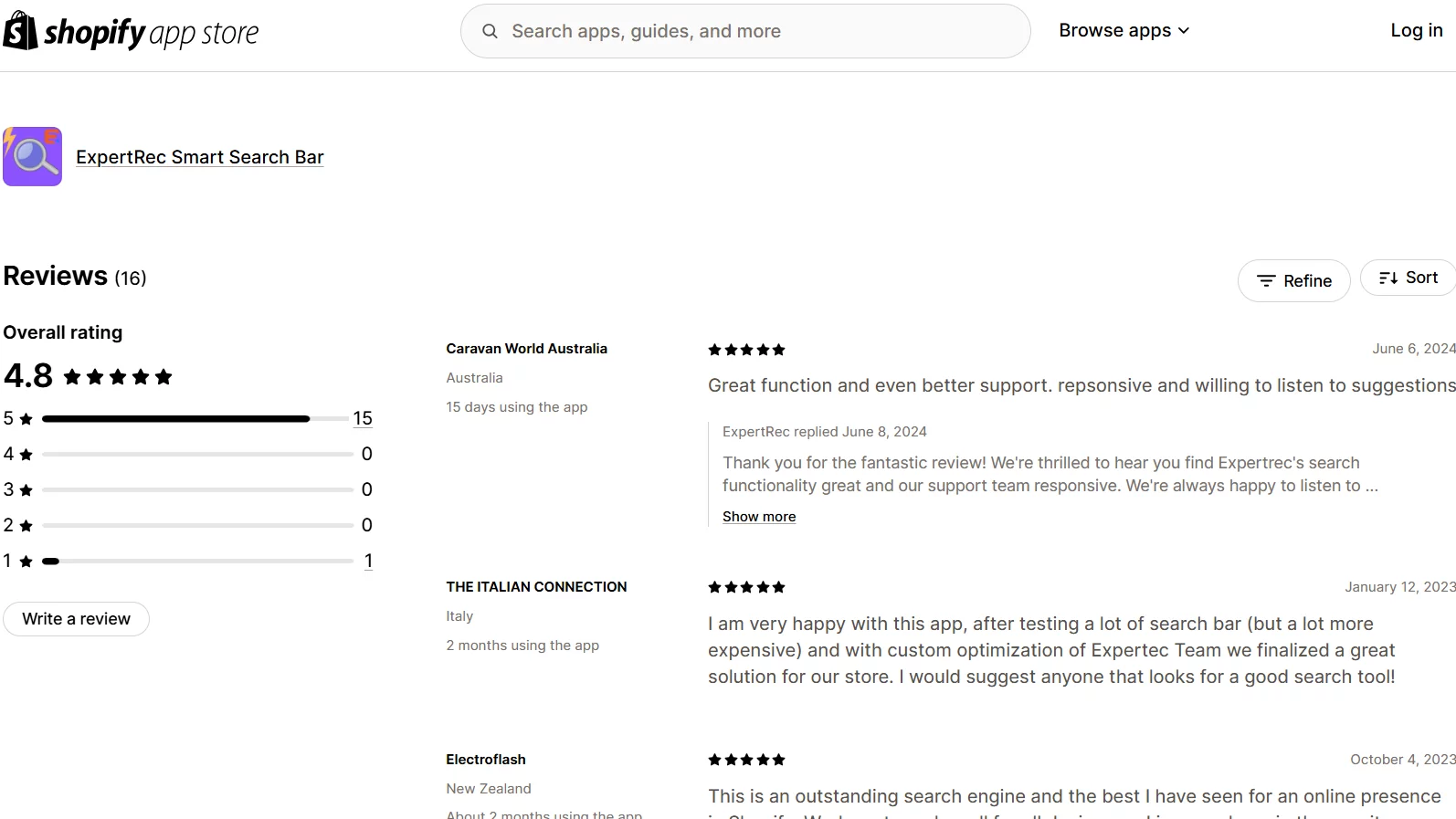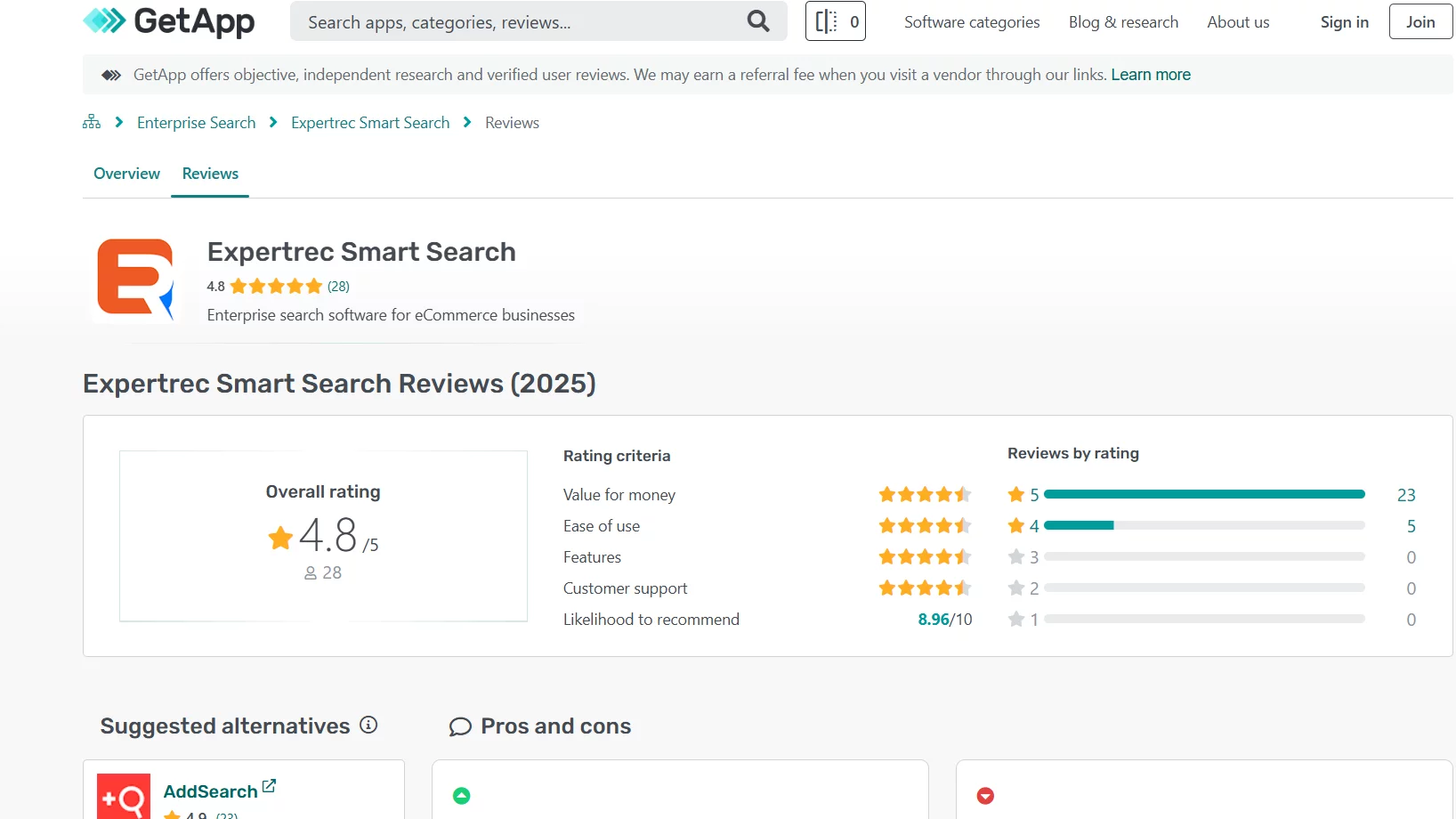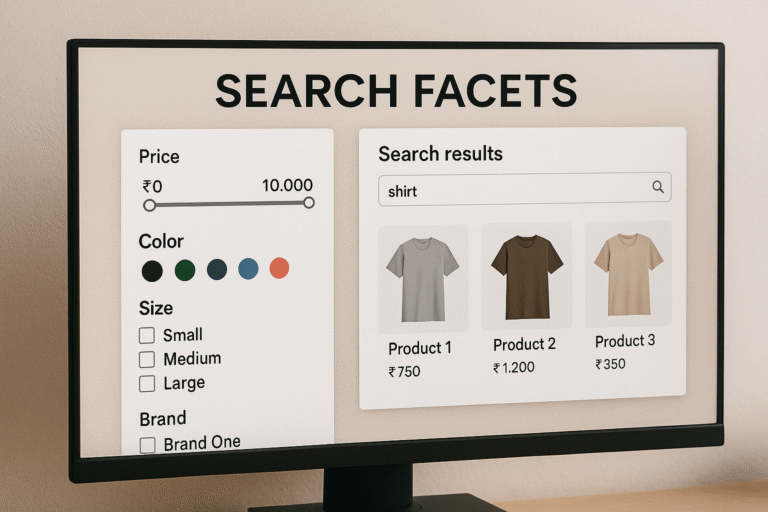In the world of eCommerce, where users expect speed, accuracy, and convenience, search facets have become essential for delivering seamless navigation and a personalized shopping experience. As product catalogs grow in size and complexity, giving users the ability to refine their searches with precision is no longer optional—it’s critical.
Search facets, also known as faceted navigation or filtering, allow users to narrow down search results based on attributes such as size, color, brand, price, or availability. This transforms a generic search experience into a guided journey where the shopper stays in control. Whether browsing hundreds of products or thousands, well-implemented facets help eliminate friction and increase the chances of conversion.
Beyond user convenience, search facets directly influence eCommerce performance metrics. They reduce bounce rates, increase time on site, and improve product findability. Without facets, users are often overwhelmed with irrelevant results or forced to navigate multiple pages, ultimately leading to frustration or cart abandonment. With facets, every click brings them closer to the product they want.
Despite their value, many stores either underuse or poorly implement search facets—using rigid filters, outdated UI, or unoptimized logic. To fully unlock the potential of your search experience, you need a solution that supports dynamic, flexible, and AI-enhanced faceted navigation. That’s where modern platforms like Expertrec come into play.
What Are Search Facets and Why Do They Matter?
Search facets allow users to filter search results based on specific attributes or metadata of products. Unlike traditional filtering, which often applies to fixed product categories, faceted search adapts dynamically based on the current result set. This ensures that users only see relevant filters, keeping the experience clean and intuitive.
Common Facets in eCommerce:
-
Brand selectors
-
Customer ratings
-
Shipping options
Faceted navigation helps bridge the gap between product discovery and decision-making. It reduces cognitive load, aligns with user intent, and improves the likelihood of conversion by showing exactly what users want—without extra effort.
Search facets aren’t just UI enhancements—they are core components of modern eCommerce site architecture. A well-implemented faceted search system empowers users to refine large sets of search results or product listings in real-time, making the entire buying process faster and more relevant.
Types of Search Facets
Facets typically align with product attributes and can be categorized as follows:
-
Textual Facets:
These include brand names, product types, categories, and materials. They help users quickly identify relevant items based on descriptive attributes. -
Numerical Facets:
Often seen in price, discount percentage, or product ratings. These can be used with sliders or range selectors for greater precision. -
Boolean Facets:
Simple yes/no values, such as “In Stock,” “On Sale,” or “Free Shipping.” These are essential for reducing friction during the final buying stages. -
Visual Facets:
Filters using images or swatches, typically for attributes like color, pattern, or style. They offer a more engaging and intuitive way for users to refine their selection. -
Hierarchical Facets:
These are multi-level filters (e.g., Electronics > Mobile Phones > Android) that guide users through deep catalogs logically and systematically.
Each facet type serves a unique purpose and contributes to faster, more satisfying user journeys. The best eCommerce stores often use a combination of all five.
How Search Facets Work Behind the Scenes
When a shopper initiates a search or browses a category, the backend system analyzes the available product set and dynamically generates applicable filters. This real-time generation ensures that only relevant options are displayed. For example, if someone searches for “running shoes,” the facets might include gender, size, brand, price range, and material—while omitting filters that don’t apply, like screen size or storage capacity.
This dynamic filtering ensures:
-
Cleaner UI: Users aren’t overwhelmed with irrelevant filters.
-
Faster Discovery: Shoppers focus on what’s available and relevant.
-
Fewer Dead Ends: By hiding filters that return zero results, the experience remains smooth.
Impact of Search Facets on eCommerce Performance
Search facets do more than help users—they drive measurable business outcomes:
-
Increased Conversions:
Shoppers who interact with filters are more likely to convert because they’re actively narrowing down their interests. -
Longer Session Times:
Facets keep users engaged and exploring, especially in large catalogs. -
Lower Bounce Rates:
Facets immediately demonstrate site functionality and inventory depth, encouraging users to stay longer. -
Higher Average Order Value (AOV):
By surfacing add-ons or higher-priced alternatives through filtered views, facets can indirectly boost order sizes. -
Improved SEO Performance:
When faceted pages are indexed carefully, they can drive long-tail organic traffic—especially for specific queries like “black leather shoes under ₹3000.”
To maximize these benefits, it’s crucial to implement a smart, scalable faceted search system that adapts as your catalog grows.
Benefits of Implementing Search Facets
When implemented correctly, search facets provide a strategic advantage across several areas of your eCommerce business:
1. Improved Product Findability
Facets allow customers to quickly locate products that meet their criteria, shortening the path to purchase.
2. Better User Experience
Interactive filters reduce frustration and provide a sense of control, making navigation feel smoother and smarter.
3. Increased Conversion Rates
With less time spent browsing irrelevant items, users are more likely to convert.
4. Lower Bounce Rates
Facets keep users engaged by guiding them deeper into your catalog rather than away from your site.
5. Enhanced Mobile Navigation
Faceted search is especially helpful for mobile users who need to find relevant products with minimal screen space and interaction.
Why Expertrec Is the Smarter Way to Add Faceted Search to Your Store
Expertrec offers a powerful and customizable faceted search engine tailored specifically for eCommerce. It goes beyond basic filtering to provide dynamic, AI-driven facets that adapt to user behavior and product data in real time.
Expertrec’s Faceted Search Features:
-
Dynamic Facet Generation
Automatically updates facets based on current search results, ensuring relevance. -
AI-Powered Facet Ordering
Prioritizes the most used and most effective filters based on user behavior and conversion data. -
No-Code Customization
Customize facet layout, style, and logic directly from the dashboard—no development needed. -
Multi-Select & Hierarchical Facets
Let users refine results across multiple dimensions without limitations. -
Mobile-Optimized UI
Delivers responsive faceted navigation for a seamless experience across all devices. -
Integration with Search Analytics
Monitor which facets are used most, how they affect conversions, and where users drop off.
By integrating Expertrec, you give your customers the ability to quickly find exactly what they’re looking for—without friction. Unlike generic plugins or template-based filters, Expertrec is built for speed, precision, and scalability.
If you’re serious about improving user experience and increasing sales, search facets powered by Expertrec are a must-have.


Final Thoughts: Search Facets Are No Longer Optional
In the evolving world of eCommerce, where customer expectations are high and attention spans are short, precision and speed in product discovery can make or break a sale. Search facets are no longer a nice-to-have feature—they’re essential to guiding shoppers toward the right product, quickly and intuitively. Whether you’re running a niche boutique or managing a massive inventory, faceted navigation gives structure to your catalog and clarity to your users.
But not all faceted search solutions are created equal. The real value lies in delivering intelligent, dynamic, and personalized filtering options that evolve with user behavior and inventory changes. That’s exactly what Expertrec offers.
If you’re looking for a way to level up your store’s search experience—with minimal development effort, fast deployment, and high ROI—Expertrec is your answer. It doesn’t just help users find products faster; it turns search into a powerful revenue driver.
Now is the time to move beyond basic filters. Embrace AI-powered search facets with Expertrec and watch your store transform from browsed to bought.
FAQs About Search Facets
While both help narrow search results, filters are often static and category-based, whereas facets are dynamic and based on the metadata of current search results, providing more precision.
2. How do search facets impact user experience?
Search facets simplify product discovery, reduce browsing time, and create a more personalized experience—especially helpful for stores with large inventories.
3. Do I need a developer to implement Expertrec’s search facets?
No. Expertrec provides no-code integration and a visual dashboard that lets you set up and customize facets easily.
4. Can I choose which facets appear in the search results?
Yes. Expertrec allows full control over which facets to show, how they behave, and how they’re displayed.
5. Is Expertrec compatible with mobile search?
Absolutely. Expertrec’s faceted navigation is fully responsive and optimized for smartphones and tablets.
6. Will adding search facets slow down my site?
No. Expertrec is performance-optimized and runs on a high-speed search infrastructure, delivering real-time filters without compromising speed.
7. How does Expertrec handle multi-select and nested facets?
Expertrec supports both features, allowing users to select multiple values within a facet or drill down through hierarchical filters.
8. How can I measure the success of my faceted search setup?
Expertrec offers built-in analytics that track facet usage, conversions, bounce rates, and more—helping you optimize continuously.




